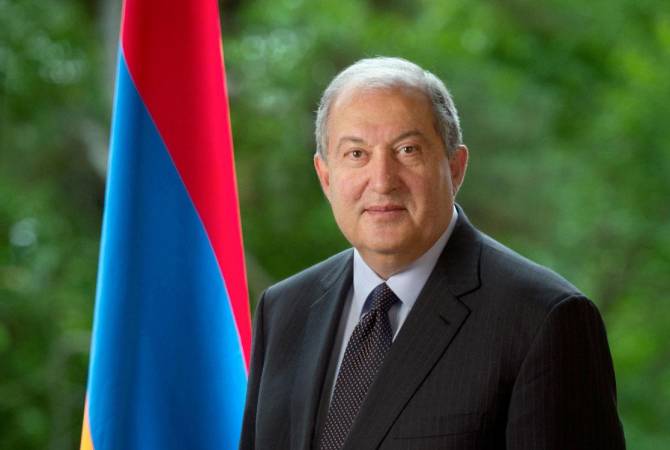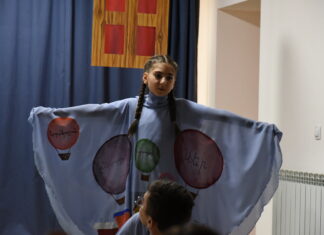Special to the Mirror-Spectator, Baikar and Azg
YEREVAN – President Armen Sarkissian of Armenia gave a wide-ranging Armenian-language interview jointly to the Armenian Mirror-Spectator, Baikar and Azg newspapers on June 17, which here is presented in edited translation.
Sarkissian expressed his deep concern about the spread of COVID-19 and the loss of lives in Armenia, pointing out that even a slight decrease in restrictions leads people to think that the pandemic is not all that dangerous. Instead, he said, “I tell everyone to be extremely prudent. The coronavirus will continue to be with us.” As to why there were so many cases in Armenia compared to its neighbors, he merely responded that each country uses different methods of combatting the virus and so the results are different. He said that it is possible that there will be new and different pandemics in the future so that Armenia must be prepared.
Meanwhile, Armenia must deal with the potential negative economic consequences of COVID-19 on tourism, international trade and the economy. Last year, Sarkissian requested that the United Nations Conference on Trade and Development (UNCTAD) prepare an “Investment Policy Review” on Armenia, which was published in November 2019 (https://unctad.org/en/PublicationsLibrary/diaepcb2019d3_en.pdf). The study identified several export and efficiency-seeking industries which could obtain billions of dollars of investments in the next 10-20 years and presented ways to remove the fundamental obstacles to these investments. The staff of the president’s office and UNCTAD, based on this report, Sarkissian said, have made proposals utilizing investment tools which can help neutralize certain threats posed by the COVID-19 crisis to Armenia, assuaging its effect on the flow of investments into Armenia and on its economy.
For this purpose, he said, they suggested the creation of a body provisionally called the Investor Quick Response Working Group (QIRT), which would complement the actions of the government to assist business. It would protect investments, assist in reinvestments and the reorientation of existing investments, and aim at the strategic targeting of investors and strategic partnership with the latter. This body would also help make Armenia better known throughout the world.
Sarkissian said that in general he saw that the majority of issues facing Armenia are complex and require non-standard thinking. The advance of technology will have a huge influence on everything, including basic social behavior, values and human behavior. Everything from tourism, agriculture, and banking to contemporary technology must advance in Armenia, he said, through a clear vision which must be consonant with the world’s progress.








